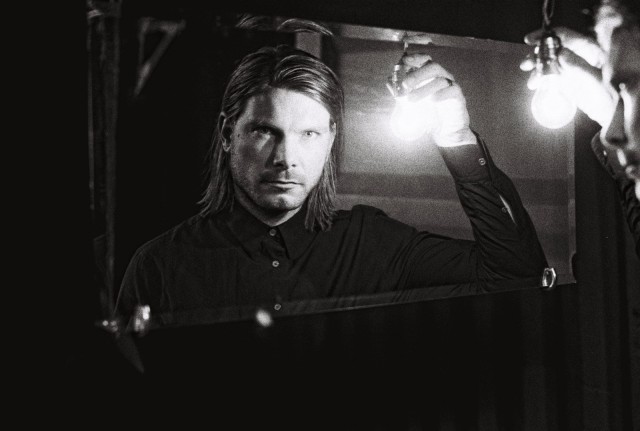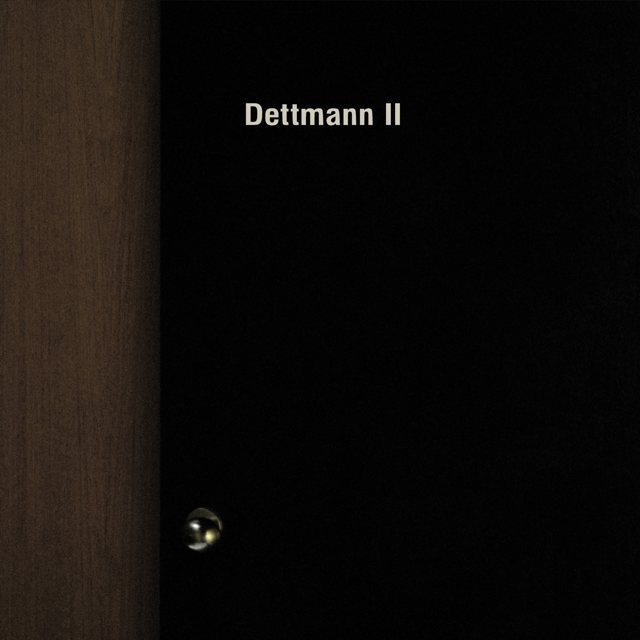Techno icon Marcel Dettmann has just released a second full-length. While associated with insistent-symmetrical dancefloor rhythms and phrases, it may be sound and timbre that are worth appreciating here. Dettmann did a wonderful interview for Electronic Beats (released in the summer, shot last winter, below). And the timing of that release makes it a perfect moment to listen to what he has to say. (You do have to get past a distracting faux film effect, an odd choice for the usually-tasteful video productions from EB.)
Dettmann’s perspective:
Techno “still is music for the future, it’s science fiction.”
But to get at the sound and feeling he describes as the future, he relies as much on the past, he says, as he’s still deeply rooted in EBM (Electronic Body Music) and industrial music. It’s future as tradition. Compare the 20th-century avant-garde, for whom noise and experimentalism was a way to break from the past; now, in Dettmann’s words, it’s a well-worn, beloved leather jacket.
That techno is not about machines, but “emotion”; he looks for himself in the tracks.
He makes melodies from sound, rather than playing them on an instrument – again, in contrast with earlier noise avant-garde, the concrete objects of music become materials for reconstructing melodic form.
This all seems doubly worth sharing as Dettmann’s approach to techno, dance music, and DJing would seem to resonate with non-dance experimentalism today.
In another seeming paradox, he notes that the effect of the Web and social media is not transience, but permanence. It’s more what’s said in print that’s forgotten, what’s said online that is forever retrievable. (I’m doubly aware of this, having been working on even finding materials from archives of Keyboard for our dance music history reader. The paper content had all but disappeared; online words from the Web age, though, are nearly impossible to erase.)
The video follows Dettmann as he makes his way to Fürstenwalde in Brandenburg, a small town of about thirty thousand lying just 55 km (34 mi) east of Berlin along the river Spree. There, he also looks for change, but describes a community that’s stagnating.
Of course, stagnation is the present criticism of techno. And perhaps this is not the dominant notion of Berlin telegraphed in the press. It’s not hype or change on evidence here, but tradition – Dettmann was associated with Berghain/Ostgut from the beginning, and it’s the export of that sound to the international club scene that has meant staying power.
The export of reliable, well-crafted techno has become as associated with Berlin as automobiles with Germany, even as younger musicians from around the world gather. But that raises a question: for all the growth of Berlin as international city, has the primary musical identity changed at anything approaching the same rate? Or does that have more to do with a market outside Berlin that’s unchanging, even as the city itself is transformed by an influx of new artists – with the outside world in love with the Berlin dance scene of the past?
Whatever the conclusion there, a new Dettmann LP should be judged against his own standards of futurism and feeling.
Entitled Dettmann II, this should at least feel like a sequel.
As with his first LP, the music is unforgivably a dance record, not one substantially reconfigured for the headphone experience – something critics have been quick to point out. That hasn’t always earned Dettmann critical acclaim.
But oddly, I think the new record does have appeal for two crowds. For anyone wanting to bring the Berghain experience home, in a way, this won’t disappoint: this is Dettmann in full-on Ostgut, concrete club mode, hard as ever and adhering to dance materials. And there’s no question that the Ostgut sound has broadened in its appeal, partly as the experience has been successfully transferred to album formats, and not only 12″ or single form.
But for the adventurous ear, Dettmann II features sculpted timbres worth hearing, and that’s the case in which the interview above can form a template for listening. Rhythmically, yes, the hard-grid symmetry of techno is fully in evidence. But listen to the tune inside the sounds, the more experimental flourishes of surprise sound design, and Dettmann II can be a treat for the brain, an eardrum-tickling timbral journey.
And despite the reviews I’ve read of it, the sounds seem to be narrative – intentionally repetitive, yes, but wandering between ambience and grid. A quick tour:
“Arise” quivers like a rattlesnake in space, an ominous prelude.
“Throb” switches to full throttle, headphone listening that’s immediately hypnotic and head-spinning, before “Ductil” relaxes into more of a groove.
“Shiver” is a chilling, otherworldly interlude.
In epic etudes of techno sound design, the track makes its way to “Outback,” which feels like science fiction almost literally – a below-deck techno thriller on an alien-infested starship, complete with echoing turbolift sounds.
Emika seems inescapable as vocalist on Berlin techno tracks, but here her distant crooning and sighs are unusually unsettling. “Seduction” is not so much sexual as it is sensually mournful – a lonely fantasy, and my favorite cut.
“Radar” is then industrial and aggressive, Dettmann back to his roots.
“Stranger” is beautifully ambient, to the point that I’m almost sad to hear “Aim” sending the record out on a dance note (though it’s successful as such).
Writing for XLR8R, Brandon Bussolini reasonably notes that most of this is still fitted to eight bar structures. But Dettmann “rattles that cage” (as one composition teacher once tried to get me to do), or – as as Bussolini puts it – adds “unexpected hits of cavernous industrial clatter, like the sound of someone breaking into a storage unit.” And I agree with Bussolini that it’s worth enjoying the record’s bursts of energy, its “queasy timbres.”
Or, as Will Lynch puts it for XLR8R, “it’s the drumless half of the album that has the most memorable moments.” It’s the bits outside of the grid that, far from being filler, offer some of the greatest promise. (Lynch also has some nice things to say about its minimalism.)
And I like what Dettmann says here not so much as far as what it has to do with techno, let alone Berlin, but what it has to do with approaching sound. That can prompt questions far beyond just dancefloors – even very famous ones.
It suggests that electronic music, after all these years, can still paint pictures of our apocalyptic inner self in a personal way – sci fi of the soul.

